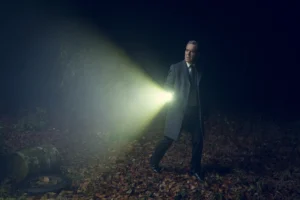Summary
Heart-breaking and powerful, A Love Song for Latasha is a poignant remembrance of a life cut tragically short.
New on Netflix, increasingly the home for valuable and diverse short-form content, A Love Song for Latasha is a striking piece of work from director Sophia Nahli Allison. Its subject is Latasha Harlins, a 15-year-old Black girl who, in 1991, was murdered by a convenience store owner over a bottle of orange juice. The broader social context is unavoidably intertwined with Latasha’s death – in 1992, Los Angeles was left charred and smoldering from the riots that broke out after four police officers were acquitted for the death of Rodney King – but this short film stirringly recalls a short life with a movingly personal touch.

A Love Song for Latasha traces its subject’s life from the death of her mother – she was shot and killed in 1985 – to growing up with her cousin Shinese, Shinese’s brother, and their grandmother. Shinese and Latasha’s best friend Ty talk about her in the same way; as a clever and ambitious girl with big dreams and a selfless attitude towards her South Central neighborhood and her similarly disadvantaged peers. The desire to keep the neighborhood kids out of trouble runs through Latasha’s ambitions in the way it always seems to in similar stories, one assumes not because the kids were looking for trouble, but that people, like a store owner willing to pull a gun and shoot a young girl in the head over $1.79, would make sure trouble found them.
The story of Latasha is tragic enough on its own, and there’s enough raw testimony here to break the most callused of hearts. But Allison isn’t content to abide by genre convention, especially in the visuals, which are impressionistic and decidedly un-documentarian. The point is obviously to complement the emotional rawness with creative expression, to underscore the tragedy of such a vibrant life cut so terribly short. The film uses art to ensure that you feel, really feel, the indescribable tragedy of Latasha’s death, and the sheer disgrace of it having occurred over such a paltry sum, for basically no reason other than assumption and prejudice. A Love Song for Latasha laments Latasha’s death, but also the circumstances in which it occurred; its power, though, is in how it honors the short life she was allowed to live.
READ: The Shepherd Review – A superb short film worthy of awards




